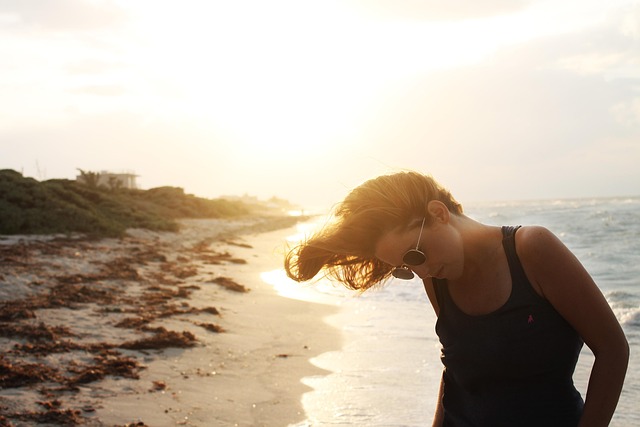In a fast-paced world, burnout from prolonged stress is a growing concern. Cold water therapy, through practices like cold plunges and showers, offers an innovative solution. This natural remedy stimulates endorphin release, reduces anxiety, and enhances mental clarity, providing effective stress relief. By incorporating brief cold exposures into daily routines, individuals can build resilience against stressors, improve focus, and promote better mental health. Real-life testimonials support its transformative power in managing anxiety and burnout, making cold plunge therapy an accessible and appealing option for overall well-being.
“Experience the power of nature’s antidote to burnout with cold plunges—a growing trend in mental wellness. This practice involves brief exposures to cold water, offering a profound impact on managing stress and anxiety. In an era where mental health is a priority, understanding the science behind cold water therapy reveals its potential for enhancing focus and promoting relaxation. From combating burnout to reducing anxiety, this ancient technique is making waves as a modern solution for optimal well-being.”
Understanding Burnout and Its Impact on Mental Health
Burnout is a state of emotional, physical, and mental exhaustion caused by prolonged or excessive stress. It often manifests as a sense of cynicism, detachment, and inefficiency at work, along with reduced personal accomplishment. Beyond professional settings, burnout can significantly impact an individual’s overall mental health, leading to heightened stress levels, anxiety, and even depression if left unaddressed. The relentless pursuit of productivity and the inability to disconnect from work have contributed to a growing prevalence of burnout, particularly in today’s fast-paced world.
Cold plunges, or cold water therapy, offer an innovative approach to managing this modern-day malady. Immersion in cold water, such as a cold plunge, has been shown to provide numerous benefits for mental health. The jolt of cold water can trigger a physiological response that reduces stress and anxiety by stimulating the release of endorphins, often referred to as “feel-good” hormones. Additionally, the calming effects of cold water immersion can help individuals gain clarity, improve focus, and cultivate a greater sense of resilience in the face of daily stressors, thereby fostering better mental well-being.
The Science Behind Cold Plunges and Their Benefits
The science behind cold plunges reveals a fascinating interplay between our bodies and extreme temperatures. When we subject ourselves to brief periods of cold water immersion, such as a cold shower or a plunge in an ice bath, our physiological response is profound. The sudden chill triggers a cascade of neurochemical reactions, releasing endorphins, often referred to as the body’s “feel-good” hormones. This natural response contributes to the calming effects of cold plunges, promoting a sense of well-being and reducing stress and anxiety.
Beyond the immediate physiological changes, regular cold exposure for stress relief has been linked to enhanced mental resilience and improved focus. The stressor that cold water presents to our bodies prompts the release of cortisol, a hormone associated with the “fight or flight” response. However, over time, this controlled exposure can help regulate cortisol levels, leading to better stress management. This is particularly beneficial for those dealing with anxiety, as the calming effects of cold therapy can provide an alternative, natural way to manage symptoms and promote mental health.
How to Incorporate Cold Water Therapy into Your Routine
Incorporating cold water therapy into your routine is simpler than you might think. Start with a cold shower—a quick 5-minute blast of cold water can wake up your senses and reduce stress levels. If you’re feeling adventurous, gradually progress to a cold plunge in a natural body of water like a lake or river, immersing yourself for a longer period, typically between 10 to 30 seconds. This practice, known as cold exposure, has been shown to stimulate the release of endorphins and reduce symptoms of anxiety and depression.
For maximum benefits, consistency is key. Aim for regular cold plunges, ideally daily, to experience their calming effects. You can also experiment with different times of day to find what works best for your mental health needs. Some people prefer morning cold plunges for an energizing start to the day, while others opt for evening immersions to unwind and prepare for sleep.
Real-Life Testimonials: Success Stories of Cold Plunge Users
Real-Life Testimonials: Unlocking Calm and Focus Through Cold Plunges
Many individuals have turned to cold plunges as a powerful tool for managing stress, anxiety, and improving overall mental well-being. The simple act of immersing oneself in cold water has sparked a movement of people seeking natural remedies for their mental health struggles. One such person is Sarah, who struggled with chronic anxiety and found solace in daily cold showers. “The initial shock of cold water quickly turned into a refreshing experience,” she shares. “It was as if my body and mind were waking up from a deep sleep, becoming more alert and calm at the same time.” Sarah’s story is not unique; numerous individuals report similar experiences, noting that cold exposure helps reduce anxiety symptoms and promotes a sense of mental clarity.
Cold water therapy has gained traction for its ability to induce rapid stress relief and enhance focus. Jack, a busy professional, incorporated cold plunges into his routine to combat burnout. “I found myself feeling more energized and capable of tackling my to-do lists after each cold immersion,” he reveals. The calming effects of cold water seem to be universally appealing, as people from diverse backgrounds report improved emotional well-being. By providing an accessible and natural way to manage stress and anxiety, cold plunges offer a refreshing alternative to traditional mental health practices, leaving users feeling refreshed and empowered.
Cold plunging offers a natural and powerful way to combat burnout, reduce stress and anxiety, and enhance mental resilience. By incorporating this simple yet effective practice into your routine, you can experience the calming effects of cold water therapy firsthand, promoting relaxation and improving focus. With its ability to stimulate mental clarity and emotional well-being, cold exposure may just be the game changer your mind needs to navigate life’s challenges with renewed energy.
